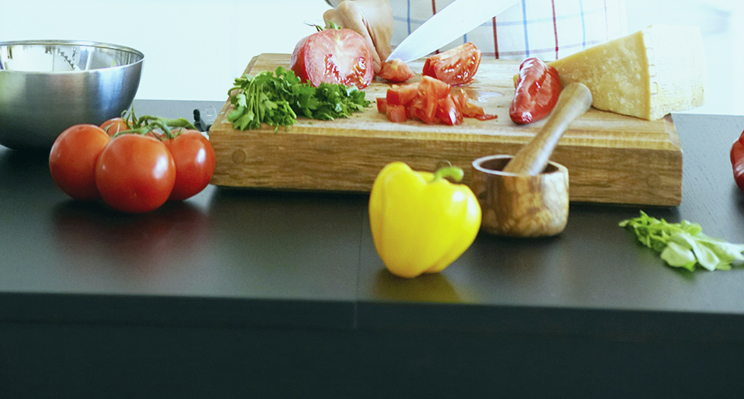 You may have seen reports in the newspapers last week revealing that carrying extra inches around the waist may increase the risk of developing bowel cancer, even in people who are close to normal weight.
You may have seen reports in the newspapers last week revealing that carrying extra inches around the waist may increase the risk of developing bowel cancer, even in people who are close to normal weight.
A new review from World Cancer Research Fund (WCRF) and Imperial College London, supports the current consensus that being overweight increases the risk of bowel cancer, but has also found that where we carry this weight is an key factor. Excess abdominal fat, extra fat carried around the waist, is a particularly important factor in the risk of developing bowel cancers.
On average, 38,500 cases of bowel cancer are diagnosed each year across the UK, and the WCRF estimates that over 2,700 cases of bowel cancer could be prevented by people maintaining a healthy weight and waist measurement. Maintaining a healthy weight is the second most important factor in reducing bowel cancer risk (after not smoking).
The recommendations for a healthy waist are dependant on gender and ethnicity. Women should aim to have a waist measuring less than 80cm (31.5 inches), white and black men should aim for less than 94cm (37 inches) and less than 90cm (35 inches) for Asian men.
Maintaining a healthy weight doesn’t have to be difficult; a balanced diet and active lifestyle is generally all that is needed.
What is a healthy balanced diet?
A healthy diet is based on starchy foods, with plenty of fruits and vegetables and is low in fat, sugar and salt. Below are some easy tips to start enjoying a balanced diet:
- Base your meals on starchy foods (potatoes, rice, pasta, cereals, pitta bread etc), choosing wholegrain options where ever possible.
- Eat a rainbow of fruits and vegetables. Aim for at least five portions a day, fresh, frozen, tinned, canned and dried can all contribute.
- Chose lower fat dairy options such as semi-skimmed milk and low fat yoghurt.
- Chose lean cuts of meat and remove visible fat.
- Steam, grill and bake foods rather than frying or roasting.
- Chose food products that are lower in salt.
- Flavour foods with spices, herbs, garlic or lemon instead of salt.
- Limit foods that are high in fat and sugar (such as sweets, chips, cakes or biscuits), eating them only as an occasional treat.
- Keep well hydrated; drink 6-8 glasses of fluid a day and keep alcohol intake to a minimum (no more than 2-3 units/day for women and 3-4 units/day for men)
- Keep active; aim to do at least 30 minutes of activity 5 times a week. This doesn’t have to be in a gym; cycling, walking, gardening and even doing household chores can all contribute.
Visit our Getting Gut Healthy page for more information and for delicious recipe ideas

